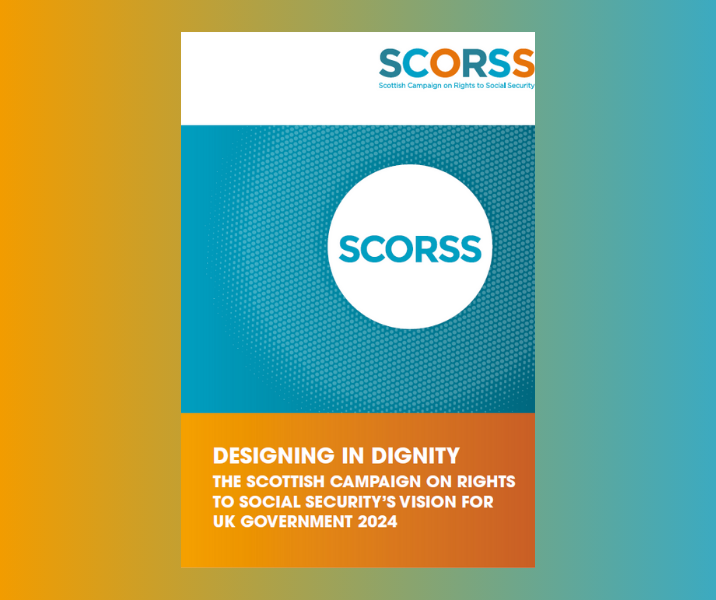
Erica Young,Policy Officer (Social Justice),Citizens Advice Scotland
What would a society which values its members equally, providing all of them with the means to flourish and live a dignified life, look like, and how do we get there?
This election year we have been vividly reminded of a fundamental truism, that social security provision reflects a community’s values. Now that the last ballot has been cast and counted, and our newly elected Westminster Parliamentarians are preparing for work, the Scottish Campaign for the Right to Social Security (ScoRSS) coalition has set out its vision of an effective and fair social security system. It is a vision that re-orientates social security toward its fundamental purpose of mitigating the risk inherent in the normal life cycle.
ScoRSS is a coalition of a diverse range of organisations leading the conversation about what works in relation to social security policy, based on the evidence of the real lives of the people that they support. SCoRSS is calling for urgent priority to be given to:
- Lifting social security payment rates to a level where no one is left in poverty and all have sufficient income to lead a dignified life;
- Making respect for human rights and dignity the cornerstone of UK and Scottish social security;
- Radically simplifying social security to ensure it is easy to access and that barriers to entitlement are removed;
- Investing in the support needed to enable everyone to participate fully in society; and
- Making social security work for Scotland.
Realising these priorities means immediately acting to remove some of the most pernicious features of our main means tested benefit, Universal Credit, including the five-week wait, the two-child limit, the benefit cap, and lower payment rates for young people. It means ensuring the financial independence of everyone by always paying Universal Credit on an individual basis. It means a fundamental re-think of the punitive and bureaucratic system which compels people to pro-actively and regularly evidence to Jobcentre staff the steps that they are taking to search for work, or negotiate more earnings, on pain of benefit withdrawal. It means redesigning a system that is pulling ever more working households and households with caring responsibilities into its orbit.
Pressure on an already struggling system has been intensified by the framing of our diminutive working age social security provision in a divisive, deflective and stigmatising way. This has been evident in the recent approach to reform of the Work Capability Assessment, used to determine eligibility for additional financial support within Universal Credit based on health-related earnings reduction, and to how people are supported to meet the additional costs of living associated with being a disabled person. In their current form, the reform proposals pose a grave risk to disabled people, while potentially damaging social and economic well-being. Since additional costs disability support has been devolved to Scotland, the proposals also create pressure points on the devolution settlement.
SCoRSS is calling for the proposed reforms to be scrapped, to be replaced by a whole person approach, considering social and individual barriers and supporting aspiration and needs. This approach must be shaped by disabled people and embed a proactive role for employers.
If we see social security as part of the foundation of our social architecture, it is experiencing subsidence that threatens the stability of the whole. The good news is that we designed the building, and it is therefore within our power to reimagine and rebuild it.
It is not necessary to look far to see different values in action in a social security system. Scotland is in the process of building a safety net based on the principals of dignity, fairness and respect, informed by lived experience and the work of ScoRSS alongside other stakeholders. Scotland has, for example, introduced a wider approach to evidencing claims for Adult Disability Payment (which provides support to meet the additional costs of being disabled in Scotland), so that the valuable insights of carers and others can be drawn upon.
With 24% of Scotland’s children growing up in poverty, and an estimated 1.2 million households in Scotland alone experiencing food insecurity, questions about how to make social security work for all have rarely been more salient, or more urgent.
It is time to consider solutions, not scapegoats. This paper outlines some of them and begins to outline the steps toward an approach to providing social security for the 21st century.


Enter your email address to receive regular e-updates about our work. If at any time you want to stop receiving these, simply contact us. We’ll keep your details safe and won’t share them with any other organisations for their marketing purposes. For full details see our Privacy Policy.